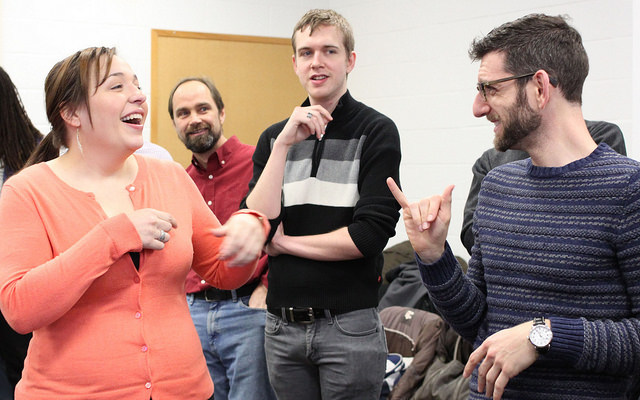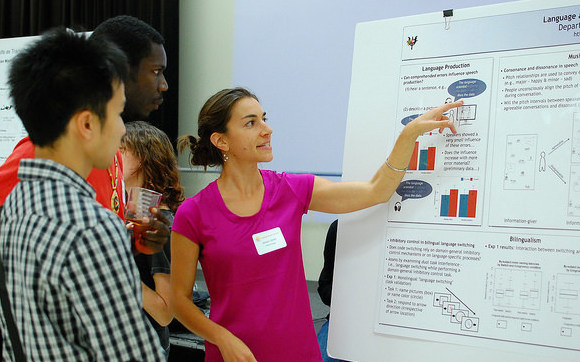Training Elements
The NRT program is LSC’s next step in interdisciplinary graduate training. Our goal is to train students who will be leaders in the field of language science: researchers who are creative, adaptable, and skilled at working in teams to solve complex problems. Our strategy for doing this incorporates essential lessons learned from our IGERT and Fellows programs, and adds several innovative components.
We have learned that training interdisciplinary researchers requires more than training in interdisciplinary research. Many activities which can initially seem incidental to research are in fact valuable in developing cross-disciplinary connections and communication skills that make people better collaborators and better scientists. These include outreach, public-facing science, and student leadership - all features of our IGERT and Language Science Fellows programs that we will continue to develop.
In addition, our NRT program has a strong focus on team-based research, preparation for diverse careers, engagement in public policy, and mentoring from scientists and professionals within and outside the student’s primary field. Specific activities include:
|
Science Policy internships |

|
|
Research-intensive workshops |

|
|
Science communication training |

|
|
Preparation for diverse careers |

|





